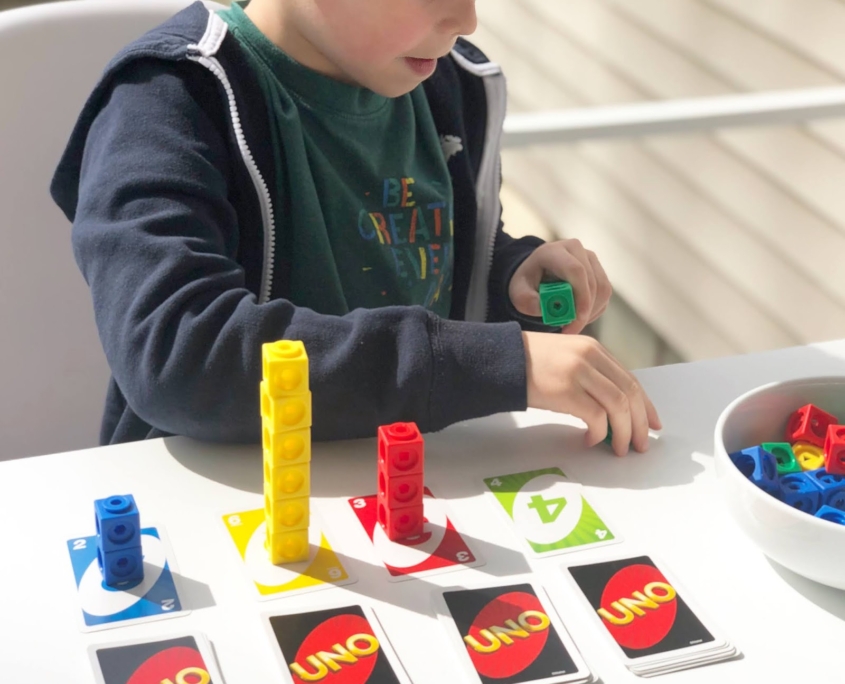
One of the characterising features of UNO is its incorporation of numbers and mathematical symbols in the game, rather than symbols as traditionally used in playing card decks. Studies have found that playing numerical card games can benefit and head-start children’s mathematical skills (Scalise et al., 2019; Scalise et al., 2022). Playing card games improved their mathematical skills in several areas (Scalise et al., 2019). Firstly, playing card games helped children develop numerical identification skills. Not only does it help children learn to identify numbers, but it also helps them maintain these skills. Playing card games also had positive effects on children’s cardinal skills. When regularly played, card games can help maintain children’s cardinal skills. The working memory of children also improved when playing numerical card games. As numerical card games like UNO are relatively cheap, accessible and easy to get your hands on, they are an ideal tool for helping to teach children math at home. This low-cost tool for teaching math can help parents of low-income households to give their children a head-start at maths at home in a fun and playful way.

UNO can also be adapted to teach many different skills. One of the many UNO variations, UNO Stacko, has successfully been used to improve the cognitive function of elderly people, stimulating certain aspects of elderly cognitive function (Has et al., 2020). Even for healthy older adults, playing card games like UNO has its benefits. For these people, playing card games increases verbal fluency and helps to maintain motor impulsivity control. In short, card games can aid in maintaining certain cognitive functions (Estrada-Plana et al., 2021).